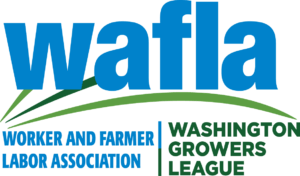Washington lawmakers embrace collective-bargaining for ‘certain’ farmworkers
Washington lawmakers embrace collective-bargaining for ‘certain’ farmworkers
April 15, 2025
By Don Jenkins, Capital Press
OLYMPIA — The Washington Senate passed a bill giving collective-bargaining rights to agricultural workers on cannabis farms, setting the stage for extending the right to all farmworkers through further legislation or litigation.
House Bill 1141, already approved by the House, passed the Senate April 14 on a 29-20 vote. All 19 Republicans voted “no.” Only one Democrat, Agriculture Committee Chairman Mike Chapman, voted against the bill.
Federal law does not grant farmworkers collective-bargaining rights. Sen. Curtis King, R-Yakima, said he couldn’t see why the cannabis industry was being singled out by state legislators.
“I don’t know what makes them any different than any other agricultural workers,” he said. “They’re dealing with what I would consider an ag product.”
Cannabis growers and retailers opposed the bill, which had the backing of the Washington State Labor Council and the United Food and Commercial Workers.
Opposition from farm lobbyists was muted, though they did ask for the bill to require secret-ballot elections to form unions. Republicans proposed the amendment, but Democrats rejected it.
House Democrats added a provision instructing courts to not interpret the law as applying to other agricultural workers.
“We worked hard with the growers to make sure we put their language in the bill to make sure it was only specific to cannabis workers, not any of our food sector,” the bill’s sponsor, Rep. Lillian Ortiz-Self, D-Mukilteo, said at a Senate hearing on the legislation. “No precedent is being set.”
The title of the bill states the legislation is related to “certain agricultural workers,” setting a precedent for giving collective-bargaining rights to Washington farmworkers.
The cannabis industry argues it’s no different than apples, potatoes or any other crop. Cannabis growers have the same need to harvest on time and respond quickly to pests and diseases, Washington Cannabusiness Association lobbyist Vicki Christophersen said.
“Singling this industry out to apply this standard, when we have the same challenges that other agricultural commodities do, is simply not right,” she said.
Whether it’s constitutional is another question. The Washington Constitution states that laws granting privileges to some citizens must apply to all citizens. The state Supreme Court in 2020 ruled that denying farmworkers overtime pay violated that principle, upsetting a law that had stood for more than 60 years.
While HB 1141 tells judges to not apply the bill to other farmworkers, it doesn’t explain why. The lack of a reason may be important if a lawsuit reaches the state Supreme Court, Worker and Farm Labor Association labor policy analyst Scott Dilley said.
“The Supreme Court didn’t follow what the Legislature said in the overtime case,” he said. “It’s what it does. That’s their job — to interpret the constitution.”
